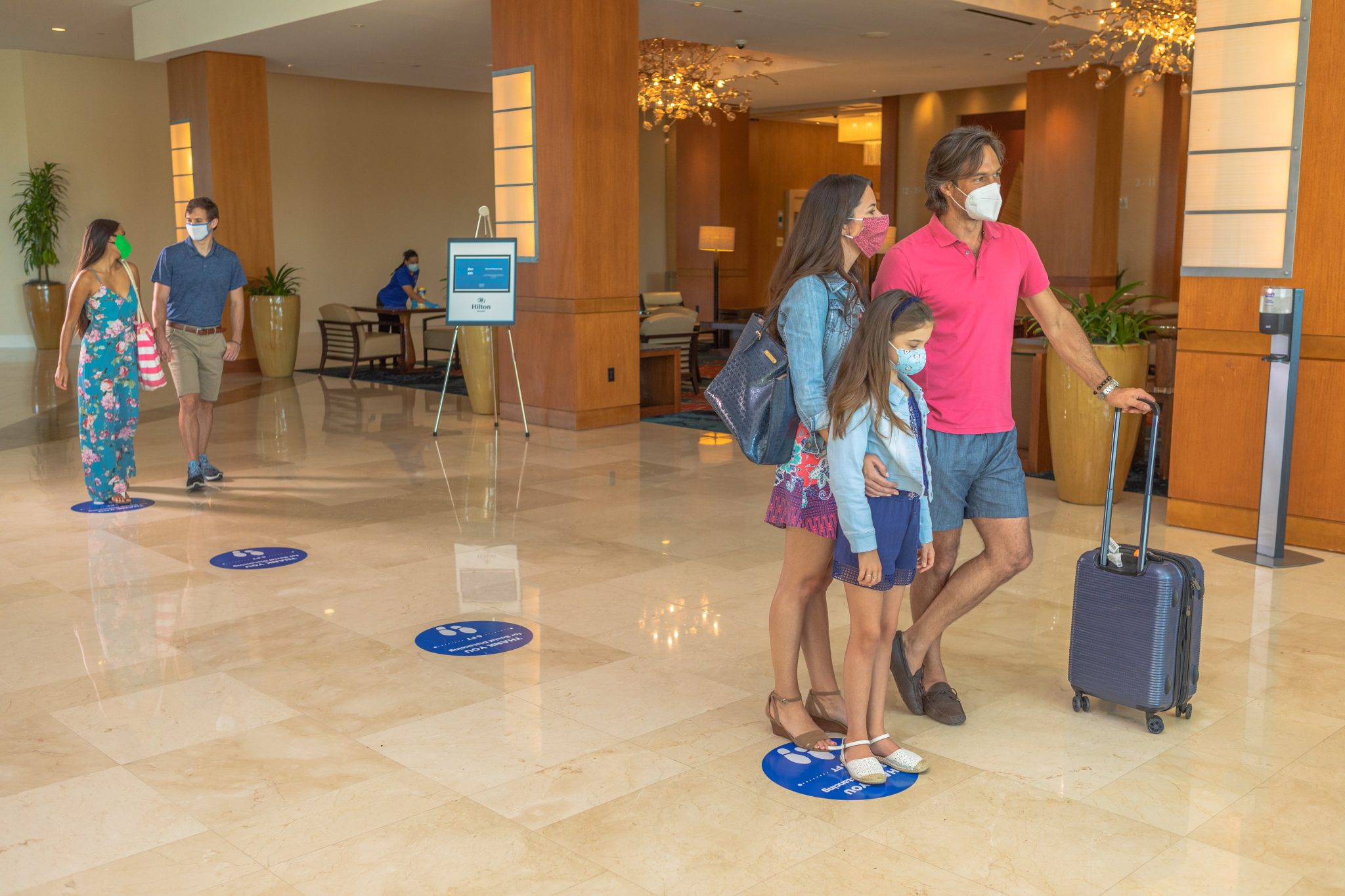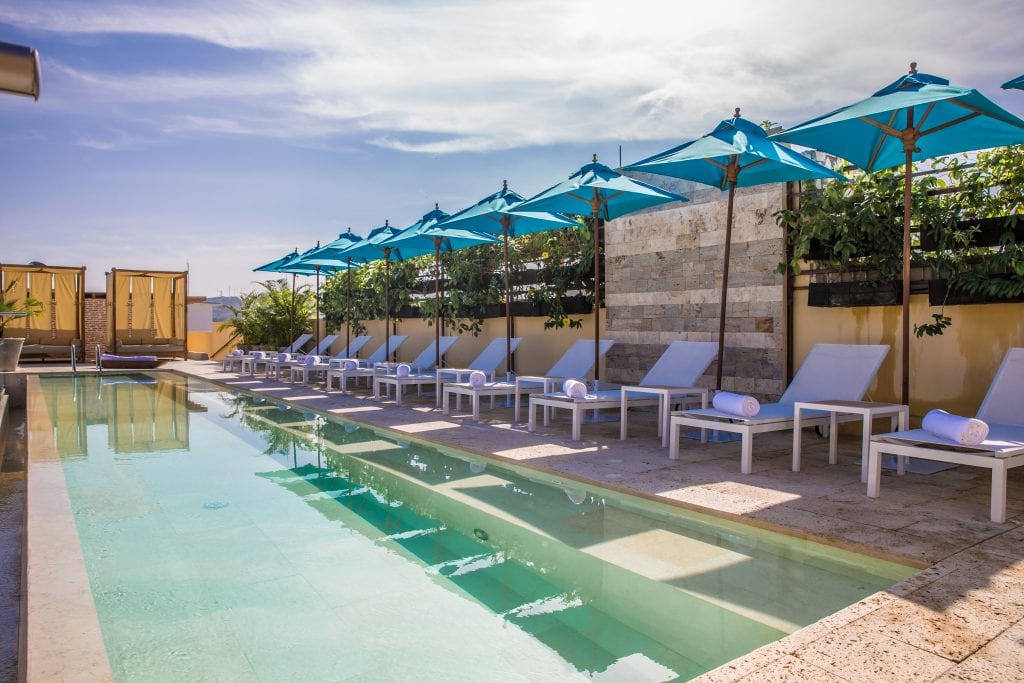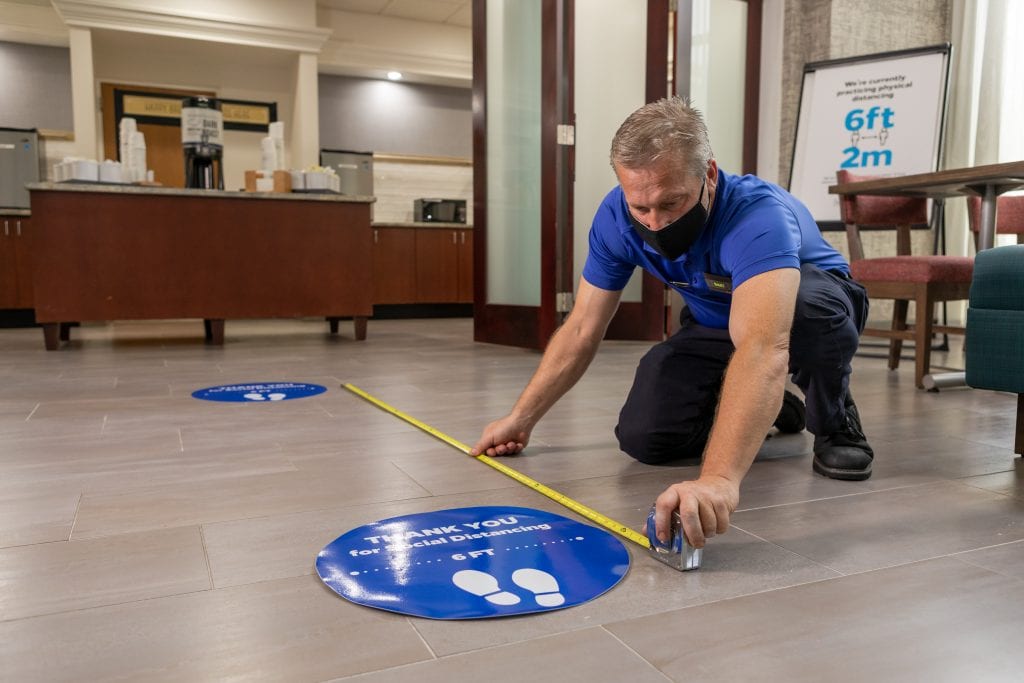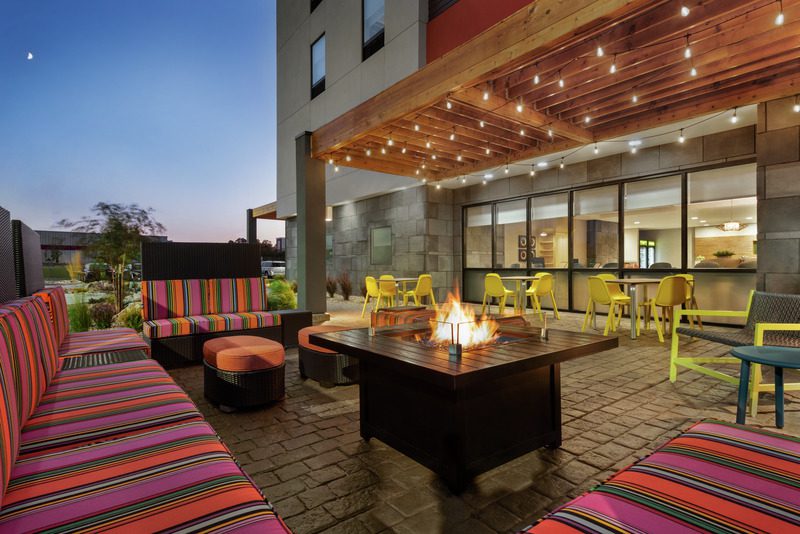5 Reasons Why Hilton Continues to Grow Its Global Footprint, Despite Covid-19 Challenges

Skift Take
The Covid-19 pandemic has had an extraordinary impact on the global hospitality industry — yet Hilton saw continued growth and development across all categories and brands in 2020. The company recently shared that it surpassed its one million rooms milestone in the fourth quarter and achieved 5.1 percent net unit growth for the full year.
Three areas have especially helped drive the company’s growth and performance throughout the past 12 months: conversion signings and new hotel openings, outsized demand for extended stay properties in drive-to leisure markets, and frequent updates to its guest loyalty program, Hilton Honors. Here, we dig deeper into why Hilton is well positioned to emerge stronger than ever from this crisis.
1. The Value Hilton Offers to Independent Hotels
Hilton commands an industry-leading share of global conversion signings. According to Hilton’s Q4 and full year 2020 earnings, the company saw an increase in conversions for the full year of more than 30 percent compared to 2019. DoubleTree by Hilton and Hilton’s Collection Brands — LXR Hotels & Resorts, Curio Collection, and Tapestry Collection — continue to attract these opportunities, with notable deals such as Mango House Seychelles, LXR Hotels & Resorts, and Nácar Hotel Cartagena, Curio Collection by Hilton announced last year.
Covid-19 has shown that strong brand names matter when it comes to customer confidence. While independent properties relied heavily on their uniqueness pre-pandemic, the benefits of joining the Hilton portfolio can reassure guests of consistency in the stay experience, and that the appropriate health and safety protocols are in place.
Being under the umbrella of a big brand can help ease operations for owners, which is especially relevant to many independents after this year’s challenges. Gary Steffen, Hilton’s global category head, Full Service, spoke to SkiftX about the success behind these conversion signings. “Joining one of these brands changes the business model for hotel owners,” he said. “They allow hoteliers to leverage Hilton’s performance advantage with our 112 million Honors members, our Hilton brand.com owned channels, and our group sales and marketing efforts.”
“The efforts Hilton undertakes — to support cleaner, safer spaces, flexible policies, sales, and other programs — are designed to drive business back to our owners’ hotels and support the future of hospitality.”
2. Hilton’s Brand Flag Attracts Investors
Steffen also explained that the decision to look to Hilton’s portfolio of 18 brands isn’t only coming from the owners — the banks backing these properties see the advantage as well, especially knowing the challenges the hospitality industry faces today. “From their standpoint, they want to make sure that the owners are partnering with a brand that has a solid distribution engine and strong equity,” Steffen said.
3. New Covid-19 Initiatives Showcase Hilton’s Innovative Thinking
Hilton has developed a number of initiatives to pivot its offerings during Covid-19, ensuring that guests feel as safe as possible while on property.
The company teamed up with RB, maker of Lysol and Dettol, and Mayo Clinic in the early days of the pandemic to develop Hilton CleanStay, its enhanced cleaning protocol. It expanded those health and safety standards for meetings and events with Hilton EventReady with CleanStay.
The company also launched WorkSpaces by Hilton, which offers guests hotel rooms equipped with Wi-Fi as they work for eight hours a day, with the assurance of Hilton CleanStay hygiene standards. Additionally, the company introduced Hilton EventReady Hybrid Solutions, a suite of offerings that direct event planners to Hilton’s hybrid-ready hotels while also providing them with planning resources, like an expanded hybrid section of the EventReady Playbook.
“The innovation behind these programs are another big reason why so many independent hotels have chosen Hilton as their partner,” Steffen said. Together, the company's programs show its customers, as well as the businesses they work with, that it has a plan in place to provide a safe and responsible environment.
4. Hilton’s Development Pipeline Reflects Positive Long-term Growth
In addition to conversions, Hilton’s new development projects continue at a strong pace. Home2 Suites by Hilton commands the largest development pipeline industry-wide in the U.S., and Hilton’s global luxury and resort category is seeing meaningful growth as well, with new signings such as Resorts World Las Vegas, featuring Conrad Las Vegas at Resorts World, Crockfords Las Vegas, LXR Hotels & Resorts, and Las Vegas Hilton at Resorts World. Additionally, in October 2020, the company celebrated its 500th Hampton by Hilton signing in China.
By the end of 2020, the company had 397,000 rooms in its overall development pipeline, across nearly 2,570 properties — more than half of which are under construction — up 3 percent from the same time last year.
5. Increased Demand of Hilton’s Extended Stay Brands
The massive shift to remote work throughout the pandemic has allowed travelers to take trips for longer periods of time than ever before. The pandemic has also caused some essential workers to temporarily settle in new locations for job-related duties.
Knowing this, it makes sense that the company's extended stay brands, which include Homewood Suites by Hilton and Home2 Suites by Hilton, are being discovered by new guests. As Bill Duncan, global category head, Focused Service & All Suites, explained, “Because of the inherent amenities, space, service, and value these brands offer, periods of downturn naturally tend to present a period of great discovery for our customers, especially those who are less familiar with our portfolio — and this remains especially true during the pandemic.”
The fully accessorized kitchens, separate living and bedroom areas, and free Wi-Fi that Homewood Suites and Home2 Suites offer — in addition to amenities like complimentary breakfast — are appealing to travelers. Embassy Suites by Hilton has also served as a home away from home in the leisure space, especially for travelers wanting to get away to warm weather destinations, or even work remotely in a new place, allowing guests to tap into Workspaces by Hilton.
Duncan explained how Homewood Suites and Home2 Suites have played an especially important role throughout the challenges of 2020: “They’re located in urban and regional locations that have been able to be a part of the solution during the pandemic, by offering a clean and safe place to stay for frontline workers, medical staff, and first responders.” He continued, “The pandemic also hasn’t stopped the occurrence of natural disasters, such as floods or fires, where people are displaced from their home for an extended period of time, creating a need for a long-term stay. These brands show the timeless importance of the extended stay category. It plays an important role in both the strongest of times and the most challenging of times.”
Though the vaccine rollout has provided a light at the end of the tunnel, there will continue to be challenging times ahead for the hospitality industry as government restrictions on travel and gatherings remain in place. But Hilton has the foundation in place to provide travelers with the evolving services, amenities, and flexibility they are seeking. At the same time, independent hotel owners who have signed on with the company are now equipped with a greater sense of security as they continue to navigate the complexities of today’s hospitality landscape. As Duncan put it, “As we round the corner of the pandemic, we'll continue to be there for our guests, owners, team members, and local communities.”
This content was created collaboratively by Hilton and Skift’s branded content studio, SkiftX.








